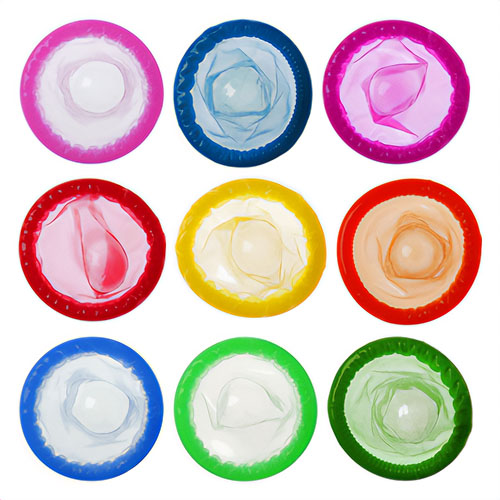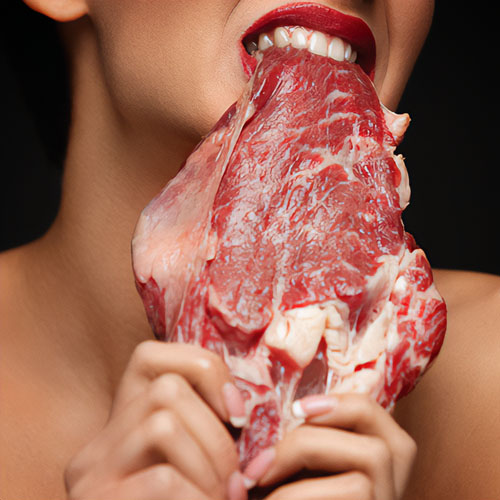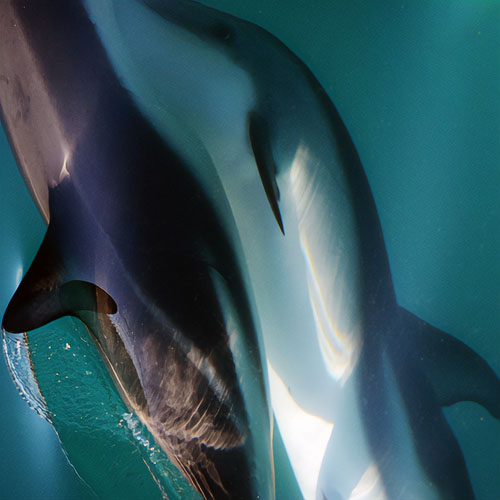The Bulldog’s boozing are all like, “Hip hip hooray, way to pound, Church!” That said, given the man’s historic role in World War II, most of us might also lean toward cutting him some slack.
Winston Churchill’s massive consumption of alcohol is well-documented. And these days, given the seriousness with which we view problem drinking, a few of us are looking back at
As drinkers go, this Brit got a lot done, on a big stage — as large as they come. Murderous racism and petty misogyny aside, Winston Churchill helped defeat Hitler and, according to my Twitter feed, at least 70 percent of us still dislike that bellowing, genocidal fascist. In a world of irony and gray zones, killing Nazis still counts for a lot, and even if revisionist killjoys are now trying to downplay the portly prime minister’s Johnny Walker intake, Churchill’s functional overseeing of an empire-in-decline staving off the one ideology that makes good guys of us all is a noble standard. Especially for those of us who think way too much about how to meet a simple deadline when the Adderall and whiskey balance has been misjudged.
But it’s easy to praise famous men — they’re famous, and even in contrarian times, there’ll always be some hack historian willing to go on Charlie Rose and agree with you.
Drop down a notch or two from the world-historical figures, though, to men and women whose names we still know and who drank at epic, Churchillian levels — and who suffered from the debilitating disease of alcoholism — but nevertheless got the sausage made. Who will step forth and write glibly of their triumphs and pain, plumbing the depths of both cynicism and human fortitude, just to make rent? Well, I have two thumbs and by no small coincidence, I come before you, readers of Penthouse, as that guy.
We have, as a society, largely dispensed with the myth that suffering makes great art. Entering into that change is the fact that most of us, even if we place considerable value on art, would rather have our loved ones happy(ish) and alive instead of following the more “romantic” course: a tortured creator battling the black dog of despair, using ceaseless inner pain as raw material, heroically succeeding in leaving a cultural mark, and then kicking the bucket with more tumultuous creativity left untapped.
Or maybe we’re still trying to figure out the exact point where a major artistic contribution validates, on some level, the time-tested ways creatives who carry lacerated souls through life drown their sorrows. Is there such a point? If so, where is it? Hell if I know. In my own life, I’ve met roughly an equal number of bores and geniuses inhabiting every part of the emotionally and chemically damaged spectrum. I’ve been tending bar for twenty years, however, and, to be honest, all of you guzzling patrons look alike. So I turn to history for this, my celebration of the Not-Quite-As-Famous-As-Winston-Churchill Problem Drinker.
We begin with a poet, Englishman Philip Larkin, whose appalling attitudes on race and gender are often defended in the same way as Churchill’s. “He was of his time,” people say. Fuck that. We are wild and free and living in the now and can judge like we’re getting paid for it (I am). But I love Larkin nonetheless. He was without a doubt a total creep and no one should spend a single second defending any aspect of that creepiness. Having said that, Larkin’s reactionary politics and antiquated views, it seems to me, are rooted in a deeply held disdain for both humanity and himself — a disdain not unlike that of the best misanthropic hardcore singers.
“I hate everyone equally” is a tiresome trope of problematic artists and noise-scene nerds alike, and I’m not here to argue the dude deserves a statue, but I get it, the shade. Hater of literary parties, lover of drink, Larkin in his poetry grapples with changing social mores and our universal death terror better than many kinder poets of his generation.
“Aubade,” his final great work, written before alcoholism and bitterness became his all, opens, “I work all day, and get half-drunk at night.” And here’s how it ends: “Meanwhile telephones crouch, getting ready to ring in locked-up offices, and all the uncaring intricate rented world begins to rouse. The sky is white as clay, with no sun. Work has to be done. Postmen like doctors go from house to house.” It’s the most penetrating consideration of our daily existential fear that I know. Larkin was a guy who once, at a writerly function, decided he was wearing enough tweed and winter layers to safely piss himself without notice. He was incorrect, but even if all the man had written was doggerel, that boldness in the face of God and fabric absorbency would be enough to include him here. (As an owner of much corduroy, I look forward to the day I try the Larkin Method myself.)
Leaving behind this politically sketchy British male, we move to another drunk poet, American, troubled, female, the fantastic Anne Sexton, who broke through in the sixties and took her own life in 1974. Sexton makes the list? Yes. True, her life was fucking sad. But it’s bullshit that the Charles “Barfly” Bukowski types get to be role models for bad boyfriends everywhere, while a woman artist who hits the bottle always earns the label “tragic.”
These ladies invariably get stuck with a Scarlet “T.” (T for tragic. And scarlet like cabernet, pinot noir, or fucking merlot.) I’m not denying the traumas and brain chemistry issues, the bipolarity, that gave rise to Sexton’s pain and made her life a living hell for the most part, but let’s face it, messed-up women artists, historically, tend to get committed while their male counterparts get mythologized and sometimes even earn a statue.
And if Anne Sexton, observing from beyond, doesn’t want to be in the company of the figures on this list, she can haunt me, her ghost. I’d welcome it, an artist that brilliant.
A pioneering confessional poet, writing about everything from depression to masturbation, Massachusetts-born Sexton, in terms that seem positively quaint now if no less offensive, was often accused of being attention-seeking. But WTF? Attention is great, it fills the void in us all for a moment, and it’s easy for me to grok those driven to seek it. Despite the notoriety that did come eventually, though, she was always a dark, despairing drinker. And she boozed right up until the end, pouring a glass of vodka as she sat in her locked garage, rings removed from her fingers, car engine running, no one there to save the day.
Anne Sexton blazed badass trails. These days, confessional poetry — and prose narratives, and songwriting — is everywhere, and it’s been that way for a few decades now. And I think we’re better for it, artists opening a vein, sharing their innermost selves.
Anne Sexton boozed until the end, pouring a glass of vodka as she sat in her locked garage, car engine running.
Goddamnit, people are interesting. I mean, when they are. And Sexton was. Her poem “Snow White and the Seven Dwarves” is unforgettable — a modern-poetry achievement I liken, in music, to Ian Curtis’s searing 1979 Joy Division song “Love Will Tear Us Apart.” That tune, written just a few months before he committed suicide, was sourced from Curtis’s life. The singer let us into his soul. And yes, it was dark — pitch black. And it will live forever.
Shit, it looks like we’re back to art and suffering. And I forgot to write a joke for this part. Drink up.
Time to lighten the mood. As I write, actor and songwriter Kris Kristofferson is both still alive and enjoying a revival. This is a guy, Texas-born, whose drinking has arguably done as much for the public good as Winston Churchill’s. I mean, even without Churchill’s wartime steadfastness, Stalin and the U.S. of A. might have eventually defeated Hitler. And it’s hard to imagine Churchill writing a song as good as “Sunday Morning Coming Down,” which captures the fun of waking up alone and hungover, craving a breakfast beer. For that matter, do you think the British Bulldog, had he been around, could have co-starred with Wesley Snipes in the Blade franchise? (I’m open to being persuaded Churchill could have done so, by the way.)
Through Kristofferson’s storied career, he has lived hard, and variously, working, playing, loving, and drinking within six degrees of separation from seppuku-committing weirdos like Yukio Mishima (Kristofferson starred in a movie adapted from a Mishima novel), leftist weirdos like writer-director John Sayles (the Bearded One co-starred in the excellent Lone Star), and even the silent-film greats who formed United Artists (the studio he helped bankrupt with Heaven’s Gate). Kristofferson wrote some of the greatest songs of the twentieth century, and while he’s been sober for years, he was putting away a bottle of whiskey before noon while starring with Barbra Streisand in A Star Is Born (the actor won a Golden Globe — watching his own performance as a drunk, deteriorating rock star convinced him to quit drinking).
The man still smokes pot at 80, and his music, for good or ill, has soundtracked generations of dissipation and regret. Kristofferson would have made the list simply on the strength of “And the beer I had for breakfast wasn’t bad. So I had one more for dessert.” After all, Sunday scriptures vary from place to place of worship.
Anyone who’s read either Joan Didion or a stray Sandman comic will never shut up about the importance of narratives — forms that make order out of chaos — in our lives. “We tell ourselves stories in order to live,” wrote Didion (who worked on the script for A Star Is Born, incidentally) at the start of her book The White Album. We look at these heavy-drinking historical figures and find ourselves projecting themes and threads upon their troubles, their addictions, their frailties. So at this point I interrupt my story-projecting to widen the lens and say, You know what, we’re all weak, and we all die, and maybe if we fuck the right anthropomorphic representation of metaphysical entities, someone will remember us. I’m pretty sure that was the point of Didion’s Hollywood novel Play It As It Lays, though it’s been a while. But please consider this consideration a celebration of the lives — the existences — of these individuals, not the disease. These are sad people who I dig, with nothing but the inability to turn down a gimlet bonding them. (Any framing device in a storm as they say. Moving on…)
It’s not every day you transition from Kris Kristofferson to Civil War general Ulysses S. Grant, but that’s what we’re doing, thanks again to the bonding of a gimlet.
Grant is an outlier in our pantheon of Not-Quite-As-Famous-As-Winston-Churchill Problem Drinkers. First off, he’s as famous as Churchill, at least stateside. Moreover, I don’t really have a strong opinion of him one way or another. I mean, I get the great things he’s done — winning the Civil War was top-notch, and I vaguely understand why historians consider him a bad president (though his reputation, I am told, is currently undergoing a rehabilitation — though not to the extent that there’s a Hamilton-esque hip-hop musical in the works). Thing is, like Brooklyn’s Violent Bullshit puts it, “Loving your president is like loving the cops.”
As for the entity Grant fought against, I don’t hate the Confederacy because they were rebels — rebels and insurgency are cool as hell — but rather, I hate Grant’s enemies because they fought for slavery and white supremacy and were generally bullshit. And I understand that the arc of justice sometimes requires siding with The Man. So keep the statues of presidential drunks on horseback and melt all the totems of General Lee — and all the sober, hateful schmucks of his ilk — into a molten puddle to be recast into the shape of Andre the Giant drinking 116 beers in one sitting. That is my patriotism given material form.
While wrestling with these larger questions, I’m tempted to include Noah (of Ark fame) on the list. According to the Old Testament, he grew a vineyard and became drunk after the big bath, and then his son, Ham, was a jerk about it, so, for some reason, Noah cursed his grandson, Canaan. I respect the pettiness required to punish a grandson and, since I like animals and pairs of animals even more, I’m generally cool with Noah and think you should be, too. But while the only recorded instance of biblical sauce-hitting takes place post-Flood, I can only assume that our man was lit when he neglected to put any dinosaurs or unicorns on the barge.
This list operates by the lofty standard “functioning alcoholic” and forgetting the Pegasi and whatnot is just sloppy. So I’m sad to say that an easy opportunity for a “We’re gonna need a bigger boat” joke must be sacrificed. We’re aiming for the greater good here — a rock-solid, incontrovertibly true assessment of the Not-Quite-As-Famous As… etcetera, etcetera. If being right was easy, everybody would do it. I’d substitute someone like Whitney Houston for Noah but she’s even more famous than Winston Churchill and Noah combined. Also, if you think I’m going to make jokes, even affectionate ones, about Whitney, you must have me mistaken me for someone who deeply wants to die on the internet.
Not-Wanting-to-Get-Yelled-at-on-the-Internet is also why, fond as I am of them, Nina Simone, any number of Sufi poets, Ant-Man, and Buzz Aldrin are omitted from this list.
These are great individuals and heavy drinkers to the last. But there’s not enough liquid courage on Earth to convince me to die on any of these hills. In fact, I only mention them in passing, if not gratuitously, because I think they’re swell and feel like sharing.
Look, life, as it is, is difficult. We humans struggle every day of our lives. Failure and humiliation come as easy as breath, and death, the inevitable intoxicant, beckons like an unhinged siren. The edge must be taken off, one way or another. Some choose sex, some choose unholy pursuit of empire, and some choose Mad Dog 20/20.
Greatness in those endeavors is hard to quantify. But I support those who strive with a gusto untethered to bourgeois considerations like dignity and self-preservation. I salute them, and you, those of you who drink hard, saying fuck you, for a while, to the dark.
“How do you make God laugh? Make a plan.” And so the joke goes (or as poet James Tate would call it, the oblivion ha-ha). Alcohol isn’t a necessity to nurture this worldview, but it helps. I mean, for a while at least, until it doesn’t.
So here’s to the temporary. Raise a glass to it. Or, as Paul Bearer, hard, hard drinker and Sheer Terror singer, always says to me when lifting another Jameson to his lips while saluting/cursing all the forces in opposition, “Up with us. Down with them.”



















